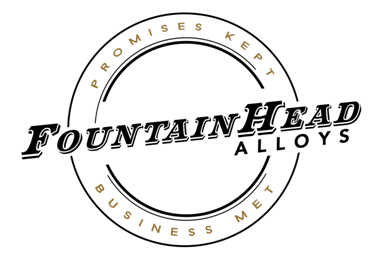Nickel alloy 42 | Invar 42 | Nilo 42 | Pernifer 42 | Werkstoff Nr. 1.3917 | UNS K94100
Carpenter Low Expansion “42”® Dumet Core Rod is a 42% nickel-iron alloy possessing a virtually constant low rate of thermal expansion at temperatures up to approximately 650°F (343°C).
This product has been used as core rod material by manufacturers of copper coated wire. After copper coating, the composite is redrawn to wire sizes that have been used for glass seal lead wires in incandescent lamps.
The thermal expansion of the composite wire provides a suitable match for glass sealing to soft glass. Typically, this core rod is uniformly coated with an 18 to 28 volume % copper sheath.
Important Note:- The following 4-level rating scale is intended for comparative purposes only. Corrosion testing is recommended; factors which affect corrosion resistance include temperature, concentration, pH, impurities, aeration, velocity, crevices, deposits, metallurgical condition, stress, surface finish and dissimilar metal contact.
Type Analysis
| Element | Min | Max |
| Carbon | — | 0.05 max |
| Nickel | — | 41.0 |
| Iron | Balance | |
| Silicon | — | 0.20 |
| Manganese | — | 0.40 |
Physical Properties
- Specific
gravity ………………………………………. 8.12 - Density
lb/cu in ………………………………………. 0.293 - Thermal conductivity
Btu-in/ft²/°F……………………………….74.5
W/m-K (20/100°C)……………………. 10.7 - Curie Temperature
°F……………………………………………….. 715
°C ………………………………………………. 380 - Electrical resistivity
ohm-cir mil/ft …………………………… 400
microhm-mm……………………………… 66 - Temperature coefficient of electrical resistivity
per °F(70/212°F)………………………… 0.0006
per °C(20/100°C) ………………………. 0.001 - Mean coefficient fo thermal expansion
10(-6)/°F(86 to 572°F) ……………….. 2.2-2.6
(86 to 842°F) ……………….. 3.7-4.1
10(-6)/°C(30 to 300°C) ………………. 4.0-4.7
(30 to 450°C) ……………….. 6.7-7.4 - Inflection Point
°F……………………………………………….. 650
°C ……………………………………………….343 - Curie Temperature
°F………………………………………………… 715
°C ………………………………………………. 380 - Melting Point
°F……………………………………………… 2600
°C……………………………………………… 1427 - Specific heat
Btu/lb-°F…………………………………… 0.12
kJ/kg-K ……………………………………. 0.50 - Modulus of elasticity
psi x 10(6) …………………………………. 21.5
MPa x 10(3) ……………………………….. 148.4
Workability
- Forging
The forging temperature should be 2150/2200°F (1177/1204°C). Avoid prolonged soaking to prevent sulfur absorption from the furnace atmosphere. - Cold Heading
Glass Sealing 42 may be swaged or cold upset. - Blanking or forming
For clean blanking of Glass Sealing 42, a Rockwell hardness of about B90 is suggested. Where any sharp bends are involved in forming finished parts from strip or rods, a hardness of not over Rockwell B93 is suitable. - Grinding
A silicon carbide wheel is desirable, preferably a soft wheel which will wear without loading. For finish grinding, a satisfactory grade to start with is No. 80 grit. - Welding
Any of the conventional welding methods can be used. When filler rod is required, Glass Sealing 42 is suggested.
Specifications
Nickel alloy 42,
Invar 42,
Nilo 42,
Pernifer 42,
Werkstoff Nr. 1.3917,
UNS K94100,
SEW 385,
ASTM F 30,
B753,
Disclaimer :- The information and data presented herein are typical or average values and are not a guarantee of maximum or minimum values. Applications specifically suggested for material described herein are made solely for the purpose of illustration to enable the reader to make his/her own evaluation and are not intended as warranties, either express or implied, of fitness for these or other purposes. There is no representation that the recipient of this literature will receive updated editions as they become available
FountainHead Alloys is ISO 9001:2015 approved. © FountainHead Alloys 1996

